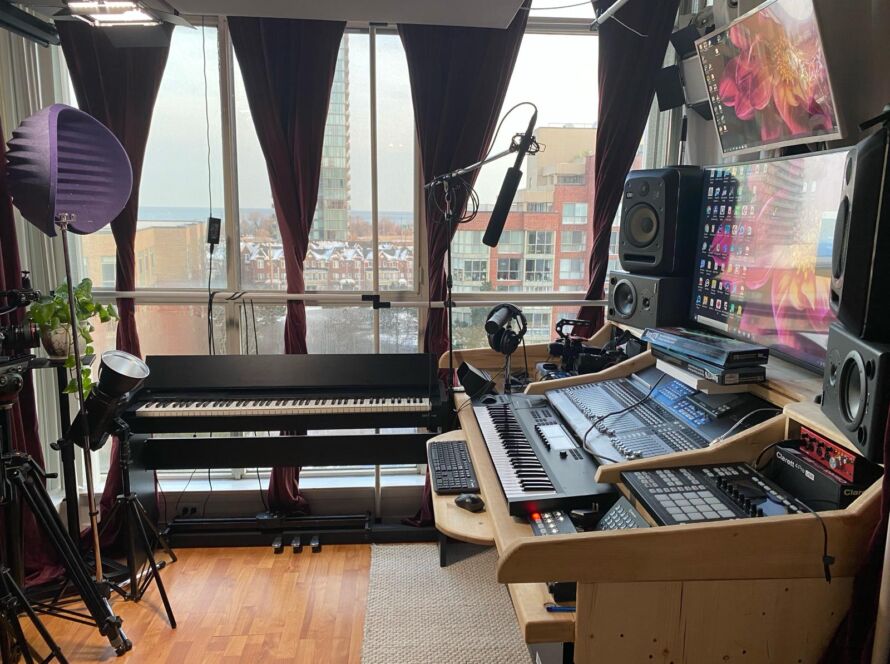A successful studio session is about preparation, creativity, and efficiency. Whether you are a seasoned musician or a newcomer, maximizing your time in the studio is crucial. A well-planned session can lead to an outstanding final track, while a poorly managed one can waste time and money. Here’s a complete guide to making the most of your studio time.
1. Preparing for Your Studio Session
Know Your Songs Inside and Out
Before stepping into the studio, make sure you know your songs perfectly. This means practicing lyrics, melodies, and instrumentation until they are second nature. The more prepared you are, the less time you will waste redoing takes.
Rehearse with Your Band or Producer
If you are recording with a band, ensure that every member is on the same page. Schedule rehearsals before the session to fine-tune your performance. If working with a producer, discuss the arrangement and structure beforehand.
Prepare Your Equipment
If you are bringing your own guitar, keyboard, or any other instrument, make sure they are in top condition. Change guitar strings, check drum heads, and tune your instruments. Bringing spare cables, picks, and batteries can save you from technical problems.
Have a Clear Vision for Your Sound
What kind of sound are you aiming for? Listen to reference tracks and communicate your vision to the sound engineer and producer. This will help them understand the vibe you are going for.
2. Setting the Right Atmosphere in the Studio
Create a Comfortable Environment
A comfortable studio environment leads to better performances. Dress in comfortable clothes, bring water, and ensure the studio space allows you to relax and focus.
Stay Positive and Open to Suggestions
Recording music is a collaborative process. Be open to feedback from your producer and engineer. Sometimes, small changes can make a song sound better than you imagined.
Minimize Distractions
Keep your phone on silent, avoid unnecessary conversations, and focus on your music. Distractions can break the creative flow and waste valuable studio time.
3. Nailing the Recording Process
Do a Warm-Up Before Recording
Just like athletes warm up before a game, musicians should do vocal and instrument warm-ups. This helps avoid strain and ensures a smoother performance.
Record Multiple Takes
Even if you think you nailed it on the first take, record a few extra takes. Sometimes, a later take will capture the right energy and emotion.
Pay Attention to Timing and Pitch
Make sure your timing and pitch are on point. If needed, use a metronome or click track to stay in sync. The cleaner your recording, the less work will be needed in post-production.
Communicate with Your Engineer
The sound engineer is there to make you sound your best. If something doesn’t feel right, let them know. A good engineer will work with you to get the best possible recording.
4. The Importance of Post-Production
Editing and Comping
After recording, the best takes are selected and combined into a polished version. This step ensures that your performance is seamless and free from errors.
Mixing for a Balanced Sound
Mixing involves adjusting levels, EQ, panning, and adding effects. This is where your song starts to come to life, so work closely with the mixing engineer to achieve the right sound.
Mastering for Final Polish
Mastering ensures that your track sounds consistent across all platforms. This final touch enhances clarity, volume, and overall impact.
5. Maximizing Your Studio Investment
Time Management is Key
Every minute in the studio costs money. Have a detailed plan to avoid wasting time. Arrive early, start on time, and stay focused.
Trust Your Team
Producers, engineers, and session musicians bring years of experience. Trust their input and allow them to enhance your music.
Take Breaks When Needed
Fatigue can affect performance. Take short breaks to stay fresh and maintain energy levels throughout the session.
6. After the Studio: Next Steps
Review Your Tracks Before Leaving
Before wrapping up, listen to everything carefully. If something needs fixing, it’s better to do it before leaving the studio.
Get Feedback and Make Adjustments
Send your track to trusted friends, fellow musicians, or mentors for feedback. Their input can help refine your final product.
Plan for Distribution and Promotion
Once your track is ready, plan your release strategy. Consider streaming platforms, social media promotion, and potential music video production.
Final Thoughts: Make Every Studio Session Count
A great studio session is about more than just playing music—it’s about preparation, mindset, and collaboration. By following these tips, you can make your time in the studio efficient, productive, and rewarding.
Ready to take your music to the next level? Start planning your studio session today and create the best music possible!
Blacktone254 is your ultimate destination for expert insights into music production, audio engineering, and the creative industry. Whether you’re an aspiring producer, an independent artist, or a passionate music enthusiast, we provide in-depth guides, tips, and industry trends to help you navigate the ever-evolving world of sound. Follow us on Facebook


